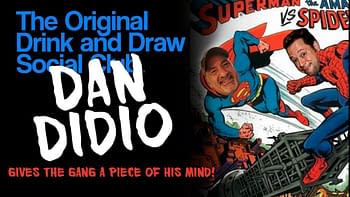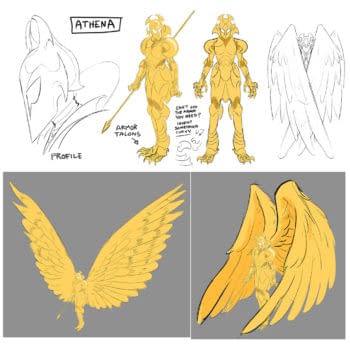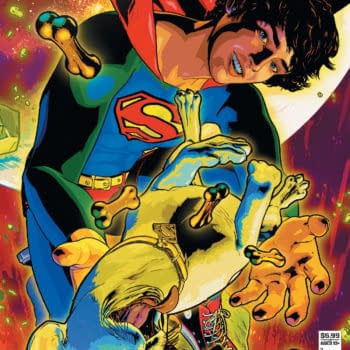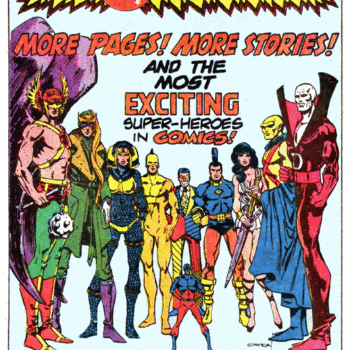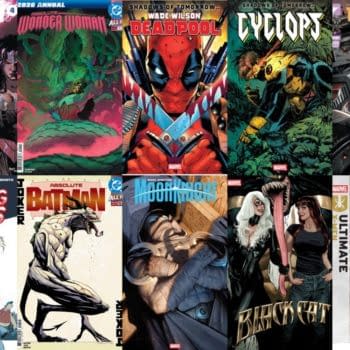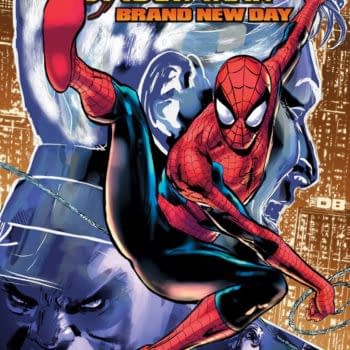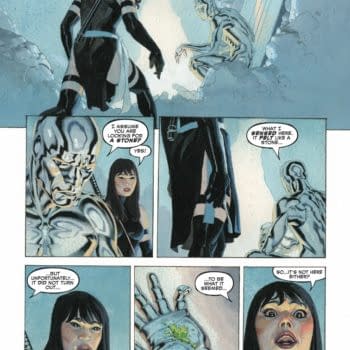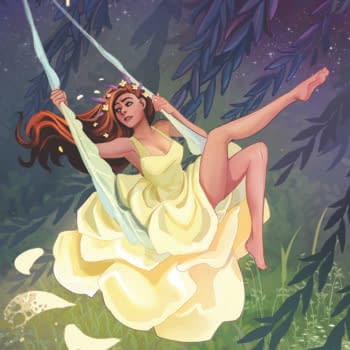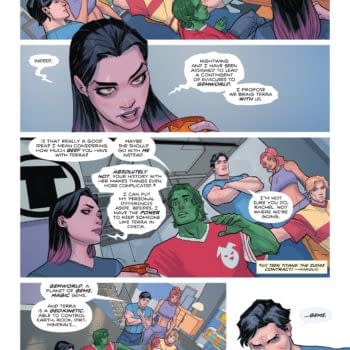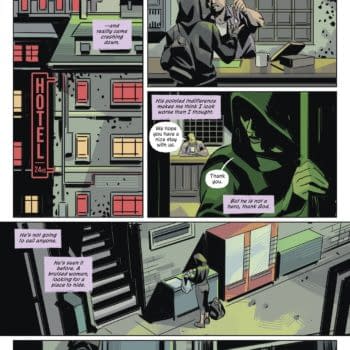Posted in: Comics | Tagged: Comics, dan didio, joe quesada, love letters
Dan DiDio and Joe Quesada on Not Writing Love Letters to Comics
Last night on the Drink And Draw YouTube channel, Dan DiDio and Joe Quesada joined Dan Panosian, Jeff Johnson, Dave Johnson and Ben Defeo to drink and draw. The conversation was naturally dominated by Joe and Dan, and they talked about the last time they met socially, and the challenges publishing mainstream superhero comic books. It brought up everything from continuity, consistency and leading the charge. DiDio repeatedly praised Marvel Comics for getting things right, how he tried to draw from Marvel when he was publisher of DC, and of his regrets at the publisher. Joe Quesada shared some of his artwork. There's a lot to enjoy.
Dan DiDio and Joe Quesada on facing similar issues
They both talked about the dangers of letting people who love the specific comic character too much to work on them. Quesada said that when this happened, this would often not be their best work. Instead, it would be a love letter to a comic book character, a present to their own ten-year-old self. Which was fine for a single issue, but not so great for a three-year run. Joe Quesada looked at the Kurt Busiek/Alex Ross Marvels series a great example of a love letter that everyone enjoyed, but that it inspired so many other people writing similar-theme books, filling the superhero medium with a complete lack of originality for years. That creators and publishers have to remember that the audience refreshes itself, and you have to keep creating for new audiences. That it is like Sisyphus, you roll a book up the hill and it rolls back down again. You have to realise that people will be rolling up and down that hill long after you are out of comics. That an occasional love letter is great, but as a line of comic books, you're dead.
Dan DiDio on the exception becoming the rule
Dan DiDio talked about the dangers of letting the exception become the rule. That the classic Marvel issue The Boy Who Collected Spider-Man was great – but then every comic started becoming it. DiDio is also critical of when a creator gives the reason they want to work on a character as an opportunity to fix them. Didio believes that is the only reason you are doing it then you are wrong, that creators and publishers should be looking forwards not back. You always have to try and create new ideas, you will never "bat a thousand" – or even five hundred, but that's where future success will come, often surprisingly so. Joe Quesada points out that the most loved comics are ones that changed the status quo, mentioning Frank Miller's Dark Knight and Born Again. DiDio added that the problem is that everyone wants everything to change but stay the same.
You can hear more, much more, in the video itself, One-and-a-half hours worth. It's a fascinating ninety-minute look at the pressures on those who are the face of comic book publishers, with DiDio and Quesada having an awful lot in common.
